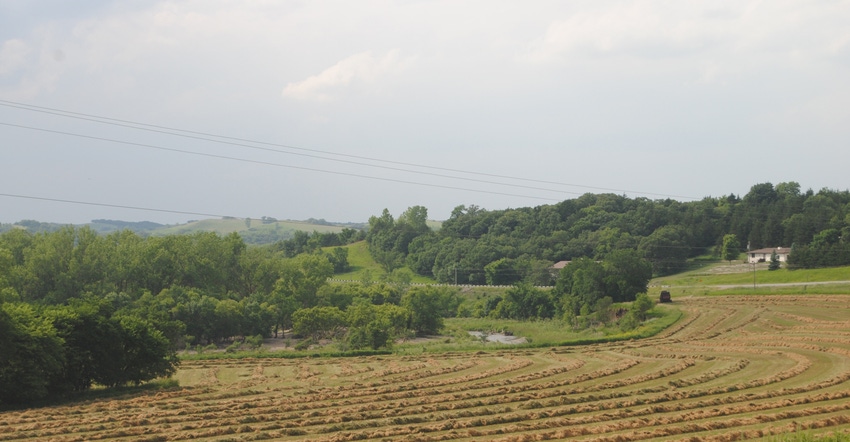December 2, 2021

Farm families that work together across the family tree and across generations seem to encounter difficulty from time to time when separating the “family” from the “business.”
Having clear, consistent and honest communications will go a long way toward reducing the troubles that can arise in difficult conversations.
Many of us have had that important conversation go the wrong direction, and then you wondered what happened. Here are some thoughts about avoiding conversation mistakes that everyone can use:
Mistake 1. Our assumptions about intentions are often wrong. We assume intentions from the effect the events have on us. We also assume the worse and treat ourselves charitably, often excusing behaviors we would strongly object to in others.
There is a cost to operating with the wrong assumptions. We often incorrectly assume the other person has bad character. When we accuse, we create defensiveness in the other person. Our attribution becomes self-fulfilling as the conflict plays out.
To avoid making this mistake, hold your view as a hypothesis, rather than truth. Share the effect on you and inquire about the other person’s intentions. Don’t pretend that you don’t have a hypothesis. Realize that some defensiveness is inevitable on both sides.
Mistake 2. Our good intentions don’t sanitize our bad impact. When we are trying to clarify our good intentions, it often prevents us from hearing what the other person is saying. As a result, we ignore the complexity of the intentions, and we aggravate any feelings of hostility.
To avoid making this mistake, we should listen past the accusation for the feelings. Be open to reflecting on the complexity of the intentions.
Mistake 3. We often blame the other person. When we blame others, it becomes difficult to separate blame from contribution. Blame is about judging, and it looks backward. On the other hand, contribution is about understanding and looking forward. Contribution comes from both sides and is interactive.
When blame is the goal, understanding is the casualty. Focusing on blame hinders problem-solving. Blame can leave a bad system undiscovered.
In the “what happened” conversation, we make three common errors:
1. The truth assumption. “I am right. You are wrong.” The situation is rarely so clear-cut. Difficult conversations are most often about conflicting perceptions, interpretations or values and not about what is true.
2. The intention invention. We assume we know the intentions of the other person. We do not, unless we have checked with them. Even worse, we often assume that the other person’s intentions are bad. Intentions are complex for the people involved, no matter which side they are on.
3. The blame frame. Here we focus on who is to blame. When we talk about fault, we simply produce disagreement and denial. Learning is virtually impossible. In almost every case, the difficulties are a result of words or actions both sides had a part in.
One approach for addressing these communication challenges is to shift to a learning stance. Here are some examples of how a simple change in questions can transform the direction of a conversation:
Rather than asking, “What happened?” “Who’s to blame?” “What’s my identity?”, ask this instead: “What has happened from the other person’s point of view?” “How does that match with my point of view?” “What are my feelings?” “What are the other person’s feelings?” “How will we manage this issue in the future?”
In general, we need to invite the other person into the conversation to begin working together to understand what has happened. Explore each other’s stories instead of arguing about who is right. We argue because we think that the other person is the problem. They believe that we are the problem. We each have logical reasons to justify our words and actions in our own story of what happened. However, arguing blocks us from exploring each other’s stories, and arguing without understanding is unpersuasive.
When we feel we have been wronged, we must work extra hard to see the world differently. This skill can be learned with practice. Keep in mind that we each have different information, we notice different things, and we each know ourselves better than anyone else. As a result, we each have different interpretations of events. Each of us is influenced by our past experiences and apply different rules to govern our behavior. Invariably, our conclusions reflect our self-interest.
We must shift the focus to improving the situation to overcome our tendency to focus on our own interests. Shift from “I know!” to “Share with me your point of view.” Try to work out a version of the events that embraces both stories. Your goal should be first to understand each other, then to look for ways to address the problem. To move forward, you must first understand where you are.
Vyhnalek is a Nebraska Extension educator for farm and ranch succession and transition.
You May Also Like




